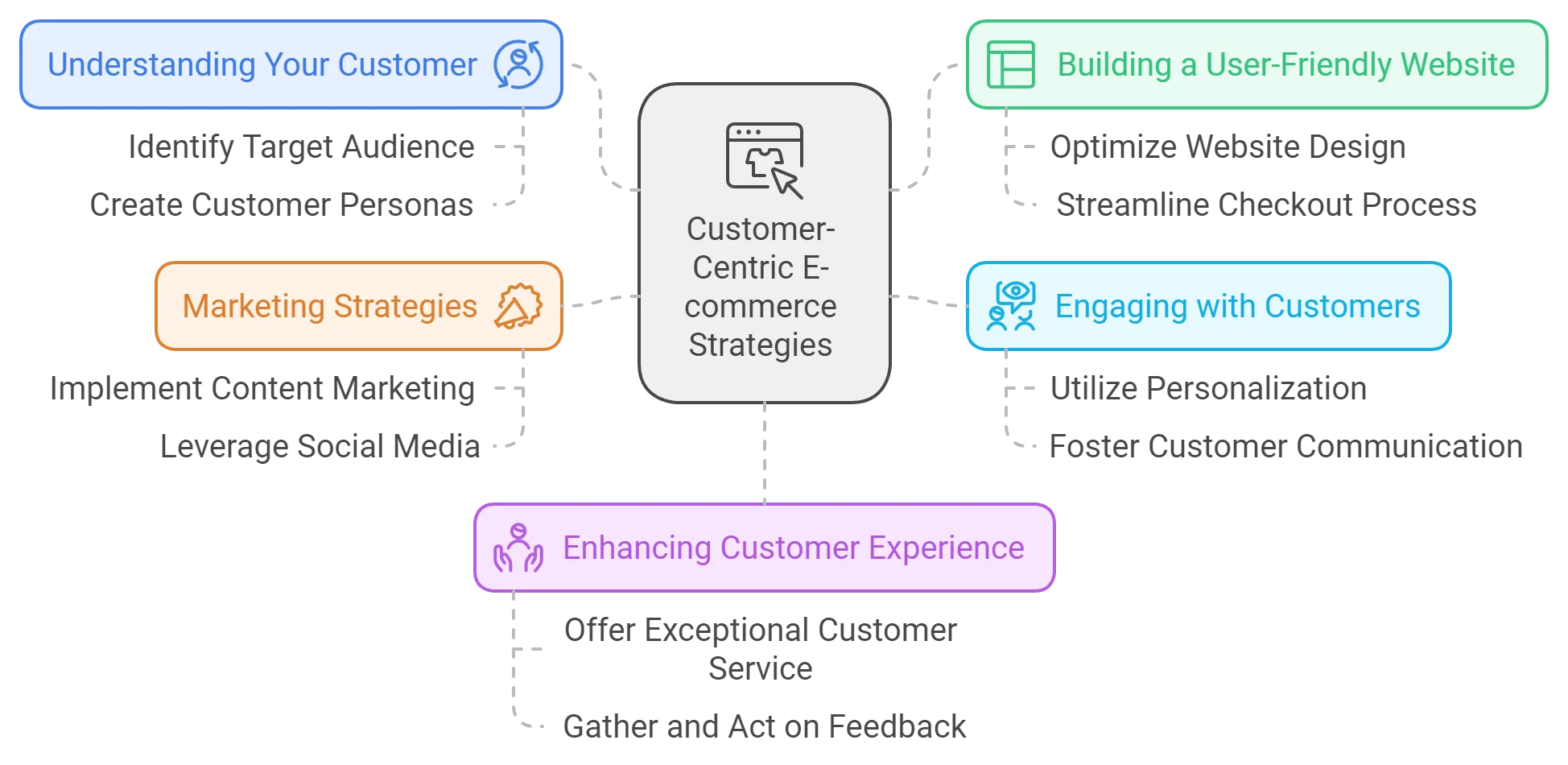E-commerce Empire: Building Your Online Store For Maximum Profit
SYED BALKHI | ENTREPRENEUR & INVESTOR
Spend money to make money...
Don’t be afraid to invest in tools, resources, and team members that can help you scale your affiliate marketing business. You have to spend money to make money.
Did you know e-commerce sales should hit £4.9 trillion by 2025? This huge potential means businesses must focus more on customers to earn more. We'll talk about being customer-focused in e-commerce. I'll share tips on how to make your online store profitable.
We'll look into why a great customer experience is key. Plus, we'll explore the secrets of building customer loyalty and growing your business.
Key Takeaways:
- Adopting a customer-friendly approach is vital for e-commerce success.
- By 2025, e-commerce sales might hit £4.9 trillion.
- A happy customer is likely to stay loyal, which boosts business.
- Knowing why customers stay committed can refine business strategies.
- Our focus will be on thinking customer-first and tips for doing well.
Want to listen? This content is available on Spotify
Ready to start?
Embracing Customer-Centricity In The E-commerce Landscape
In e-commerce, delivering great customer experiences is key to success. It's all about putting customers first. This strategy helps businesses grow by keeping customers happy and loyal.
The Importance Of A Positive Customer Experience
A good experience for customers is essential. It makes them want to return, buy more, and tell friends about the brand. This kind of positive sharing leads to more loyal customers and growth for the business.
When customers feel valued, they get attached to the brand emotionally. They see the brand as one they can trust. This trust turns into loyalty over time, with customers choosing the brand over others.
Good customer experiences can also create fans of the brand. Happy customers often talk about their good experiences online or in reviews. This can boost the brand's visibility and bring in new customers.
The Psychology Behind Customer Loyalty And Business Growth
For e-commerce to grow, understanding what makes customers loyal is important. Strong emotional ties to a brand encourage loyalty and a sense of belonging.
Customers want to be treated well and will stay loyal to those who do. When companies exceed their expectations, customers want to stay with the brand. This dynamic helps businesses do better financially through customer loyalty.
Fear of missing out also plays a role in customer loyalty. By offering special deals and personalised recommendations, businesses can attract customers. This approach helps engage clients, build loyalty, and grow the business.
Overall, focusing on customers in e-commerce is essential. Businesses can grow and stand out in their market by creating great experiences and understanding what drives loyalty.
| Benefits Of Embracing Customer-Centricity | Impact On Business |
|---|---|
| Enhanced customer satisfaction | Increased customer loyalty |
| Positive word-of-mouth and brand advocacy | Higher customer lifetime value |
| Improved customer retention | Increased revenue and profitability |
How To Make Money Creating & Selling Info Products
Developing A Business Strategy Focused On Customer Needs
Finding e-commerce success means putting customer needs first. This significantly boosts your online business. It helps it grow and make more profit.
Knowing what your customers want is key. Research your audience well to understand what they like and need. This knowledge lets you adjust your offerings and communications. That way, you improve the customer’s experience.
But, a customer-focused approach is more than just meeting their needs. It’s about going above and beyond. It builds a strong, long-lasting bond between them and your brand.
Focus on products, prices, and how you serve customers. Make things that solve their problems. By doing this, you become a go-to option for them.
Great customer service is essential too. Quick answers to questions or help with issues go a long way. This boosts their happiness, loyalty, and they're more likely to recommend you.
Another key is using data smartly. Knowing what customers bought before or looked at helps you personalise offerings. This increases the chance they'll buy again.
In the end, a strategy centred on customers drives e-commerce success. Being customer-focused, tailoring your offers, and using data all play a part. It’s how you stand out and do well over time.
Discover MAP
The Ultimate Affiliate Ecosystem
Master Affiliate Profits (MAP) is a ground-breaking ecosystem designed by marketing experts John Thornhill, Omar Martin, and Melinda Martin.
Boosting E-commerce Sales with Optimised Customer Relationships
In e-commerce, strong customer relationships are vital for sales and loyalty. Optimising these, businesses create deeper connections for returning customers and more revenue. We'll look at how Customer Relationship Management (CRM) systems deepen these ties. Also, we'll explore using data strategies to better the customer journey.
How CRM Systems Foster Deeper Customer Connections
CRM systems are key for managing and nurturing customer ties. They let businesses keep and analyse all customer info in one place, like purchase history and preferences. This puts each customer's needs at the heart of your marketing, for personalised experiences.
These systems also help you see how customers interact with you, like through social media and emails. By checking these patterns, you can spot and fix any problems fast. This means keeping in touch and solving issues quickly. And that, in the end, boosts trust and loyalty.
Utilising Data To Enhance The Customer Journey
Using data is crucial for a better customer journey and more sales. It gives you insights into what customers like and buy, so you can run targeted campaigns and suggest personalised products. This is a big step in making your customers feel understood and valued.
One great tactic is offering products customers are likely to enjoy, based on what they’ve bought before. This not only improves your sales but also shows you care about their unique needs.
Plus, data can help spot where your customer journey could be smoother. By watching feedback and behaviour, you can find out where customers might be struggling. Then you can work on those areas, making their experience better.
By making the most of CRM and using clever data strategies, businesses can significantly improve sales and bond with customers. These methods let you tailor your customer's experience, predict what they'll like, and offer custom suggestions. Putting the customer first in e-commerce is key to staying ahead and achieving lasting success.
Making Money With E-commerce Through Data-Driven Strategies
Data-driven strategies are crucial for e-commerce success. They help businesses use customer data to understand preferences. This understanding leads to better product offers, ultimately increasing profit and customer value.
Monetising Customer Data For Targeted Product Offerings
Businesses can make their customer data work for them. By analysing this data, they spot trends and what customers like. This helps in creating products and services that truly meet customer needs.
Take an online fashion shop, for example. They look at what customers have looked at and bought. Then, they suggest products those customers are likely to love. Doing this makes customers happier, which can lead to more sales and, in the end, more money for the shop.
Strategies For Increasing Customer Lifetime Value
Boosting customer lifetime value is also vital. This means keeping customers happy over time. It's about knowing what they like and finding ways to keep them coming back.
One technique is sorting customers into groups based on how often they buy, or how much they spend. Then shops can offer them special deals or extras. This makes customers feel valued and more likely to shop again.
Focusing on keeping customers over the long term is smart business. It not only brings in steady money. It also forms a loyal customer group that continues to spend, making profits more predictable.
For e-commerce, turning to data is a game-changer. It can help businesses understand their customers better and, in turn, grow profits. By making smarter product choices and keeping customers happy for the long term, businesses set themselves up for lasting success.
Sign Up Now
Unlock Your Online Earning Potential
Take the first step towards a lucrative future - sign up for exclusive insights and resources!
The Role Of Digital Marketing In E-commerce Revenue Generation
In today's digital age, the role of digital marketing in boosting e-commerce revenue stands out. The rise of online shopping makes it essential for businesses to use smart digital marketing strategies. These help increase their sales online and grow their income. Let's dive into the effective techniques and approaches businesses can use for e-commerce success.
Digital marketing brings together many strategies to promote products and bring in customers. Online advertising is a key part, letting businesses aim their promotions at specific groups. With targeted ads, they can connect with potential customers when and where it matters most. This leads to more sales and profit.
Search engine optimization (SEO), content marketing, and social media marketing are also key tactics for success. SEO and improving content for search engines boost a business's online visibility. This brings in more visitors without paid ads. Additionally, content marketing helps businesses connect with their audience by offering valuable content. This builds trust and can lead to more sales.
"Digital marketing encompasses a range of strategies and tactics to promote products, attract customers, and drive conversions."
Social media marketing is a powerful e-commerce tool. With billions using social media, businesses can find a huge, interested audience there. Creating content that people want to share helps promote products and engage customers. This can lead to more people recognising the brand, becoming loyal customers, and increasing revenue.
Look at this table to see how various digital marketing channels boost online sales and revenue:
| Digital Marketing Channel | Online Sales Increase (%) | Revenue Growth (%) |
|---|---|---|
| Search Engine Optimization (SEO) | 30% | 25% |
| Pay-per-click (PPC) Advertising | 45% | 40% |
| Social Media Marketing | 50% | 35% |
| Email Marketing | 20% | 15% |
This table shows how powerful digital marketing channels are in growing e-commerce sales and revenue. By focusing on these strategies, businesses can see big growth in this competitive field.
Summing up, digital marketing is key for e-commerce revenue. By using smart strategies like online ads, SEO, and content marketing, businesses can attract more customers and make more sales. Businesses need to use digital marketing effectively to keep up in the fast-changing e-commerce world.
Leveraging Social Media And Content For E-commerce Profitability
In the current digital world, social media marketing and content are key. They help businesses make more money online. By using social media and creating fine content, companies can make their brand visible and boost sales.
Social media allows businesses to chat with their audience on different sites. Like Facebook and Instagram. This lets them reach more people and make their brand known. It also helps companies talk right to their customers. So, they can make friends and give top-notch service.
On the other hand, content marketing is about sharing useful and regular info to interest and keep customers. This might be through blogs, videos, or graphs. Good content makes companies seem smart. And it builds a lot of trust with people.
Joining social media and content work can help businesses grow in loads of ways. First, they are great for shouting about products, getting people to their sites, and selling more. By aiming their efforts at social media, businesses can make more money and win more fans.






Become A Go-To For Trustworthy Advice
Next, content marketing is awesome for teaching people about what a company does. By offering helpful info, businesses become a go-to for trustworthy advice. This makes customers come back more, meaning more money for the business.
Lastly, both social media and content help companies stay on top in the online world. When businesses create stuff that people share, lots more folks get to see it. That can mean more clicks, a better spot in search results, and more sales chances.
In short, making the most of social media and good content is vital for making money online. With these tools, businesses can show off their brand, sell more, and keep customers happy. Using these in their online plans can make a company shine online.
The Bottom Line
Wrapping up, and putting customers first is key to winning at e-commerce. We looked at how vital a happy customer is, the secrets of getting them to come back and making sure your business fits their needs.
Taking care of your customers makes them stick around and spend more. It lets you learn from the data and make their shopping trips better. Soon, your sales will grow, and you can sell more by knowing what they want.
Digital marketing is crucial for making money online. Social media and good content help your brand stand out, bringing in more profit. These tools help e-commerce shops get bigger and sell more.
To sum up, focusing on your customers' needs can push your online shop towards profit and lasting success. Great experiences, smart use of data, and reaching customers well through marketing all play a big part. They're the keys to making any e-commerce business thrive.
Glossary Of Key Terms
- Customer-Centricity: A business approach where customer needs and satisfaction are prioritised to drive growth and loyalty.
- Customer Experience (CX): The overall impression a customer forms about a business based on all their interactions, from browsing to purchasing and beyond.
- Customer Loyalty: When a customer consistently chooses to do business with a particular company over competitors, often driven by positive experiences and emotional connection.
- Customer Relationship Management (CRM): Systems and strategies used to manage and analyse customer interactions and data throughout the customer lifecycle.
- Data-Driven Strategies: Business decisions and actions based on analysis of customer data to understand trends, preferences, and behaviours.
- Customer Lifetime Value (CLTV): The predicted total revenue a business expects to generate from a single customer throughout their entire relationship with the company.
- Digital Marketing: The use of online channels and technologies to promote products, reach target audiences, and drive sales.
- Search Engine Optimisation (SEO): The process of improving a website's visibility and ranking on search engine results pages (SERPs) through organic (non-paid) efforts.
- Content Marketing: Creating and sharing valuable, relevant, and consistent content to attract and engage a target audience, ultimately driving profitable customer action.
- Social Media Marketing: Using social media platforms to connect with your audience, build relationships, increase brand awareness, and drive traffic and sales.
FAQ
Want to boost your e-commerce sales? Try these tips. First, make your product listings better. Then, focus on making your website easy to use. You should also use social media ads. And don't forget to work on your SEO, to get more people to see your site. Giving discounts, free shipping, and recommendations can also boost sales.
First, use the right keywords in your product listings. For pictures, use high-quality images. Next, make sure you give a lot of accurate details about your products. Lastly, ask your customers to leave reviews. This can help build trust.
Conversion rate optimization (CRO) is about making more visitors buy from you. By making your website and marketing better, you can improve people's experience. This often leads to more sales. It helps you make the most money from the people who already visit your site.
Keep customers coming back with these strategies. First, use emails that are personal. Then, have a loyalty scheme. Offering great customer service is a must. Also, give special offers to your loyal customers. Keeping in touch can make them stay with you longer.
E-commerce analytics give you lots of important data. You can see things like how many people visit your site and what they buy. By looking at this data, you can spot trends and find ways to improve. This helps you make smart choices based on facts, not guesses.
PayPal, Stripe, Square, and Authorize.Net are well-known payment gateways. They let you take payments online safely. They also make the buying process smooth for your customers. This can help turn visitors into buyers.
Dropshipping means you don't keep products in stock. Instead, you buy the product from a third party when it's sold. Your supplier then sends it directly to the customer. Managing inventory means you hold your own products and ship them out yourself. Each method has its own set of advantages and challenges.
You can market your e-commerce business in many ways. These include SEO, social media, PPC ads, emails, content, and working with influencers. It's crucial to know who your customers are. Pick the best ways to reach them, keeping your budget in mind.
Legalities matter in e-commerce. You need to follow data protection, privacy, and consumer laws. Make sure you have clear terms, privacy, and cookie policies. Also, know your tax duties and any rules specific to your industry.
For long-term growth, focus on expanding your products. Also, make operations better and invest in marketing. Always look at what customers and the market are saying. To grow, you need a strong base, flexible systems, and a focus on what customers need.

